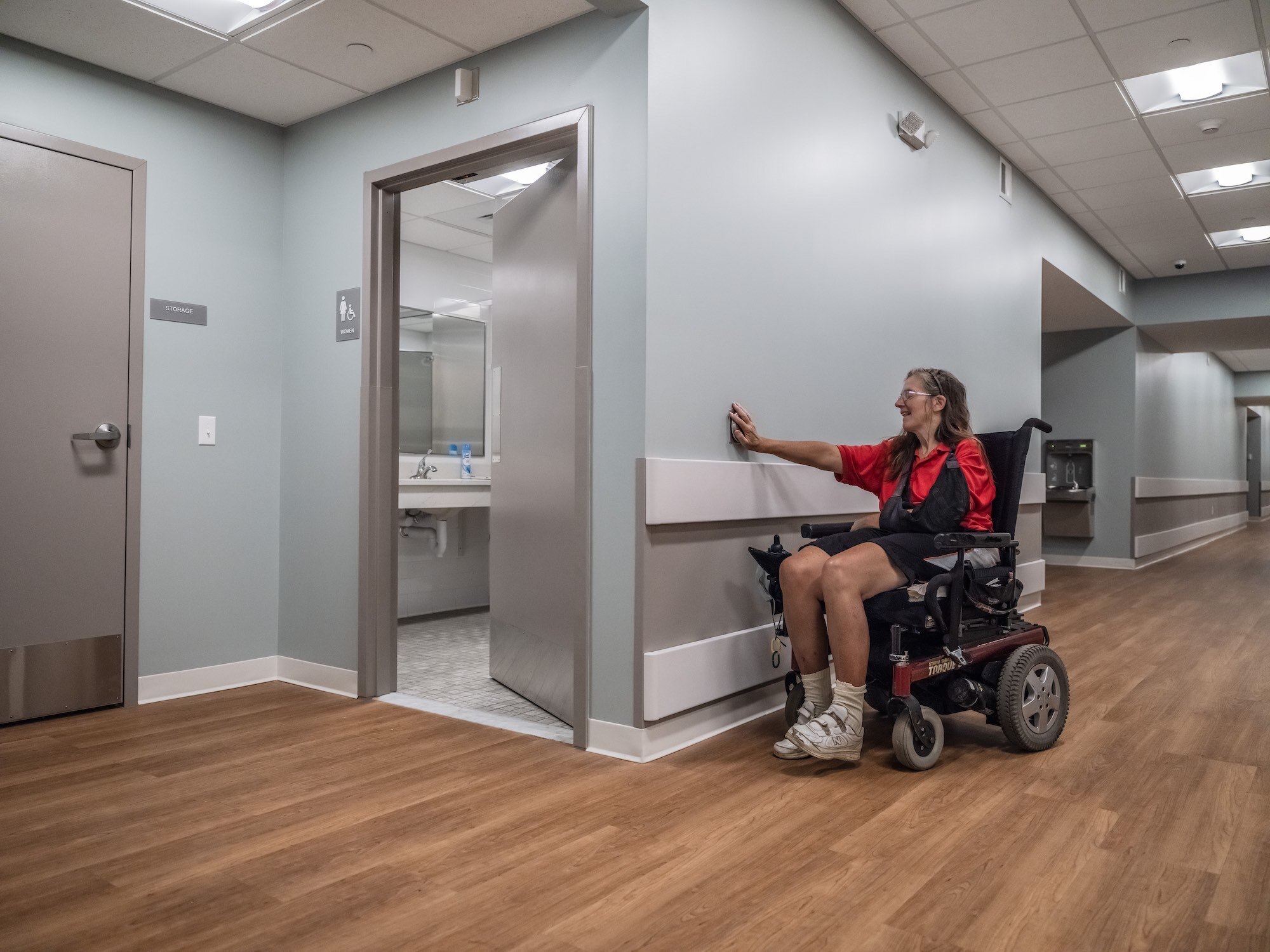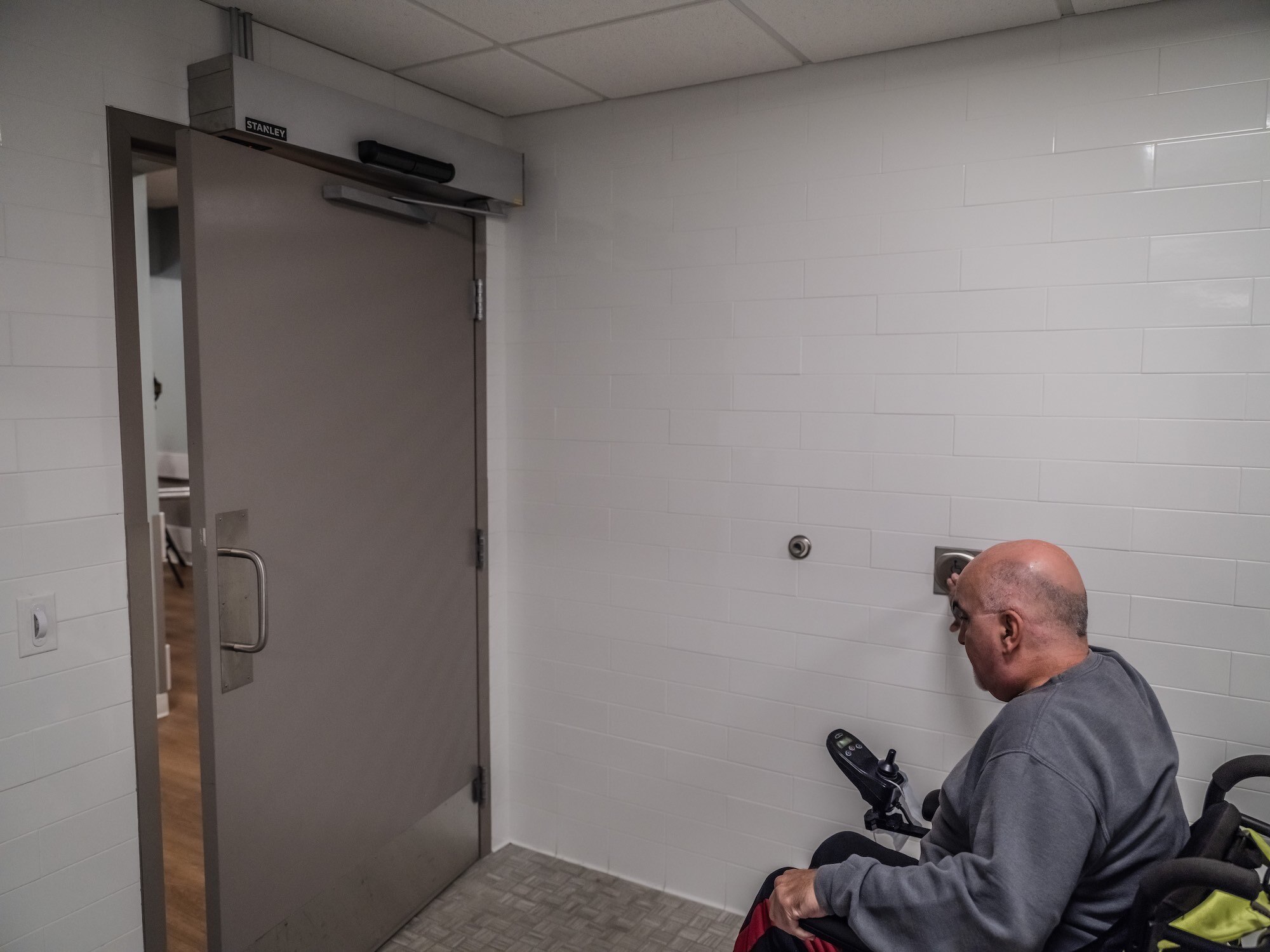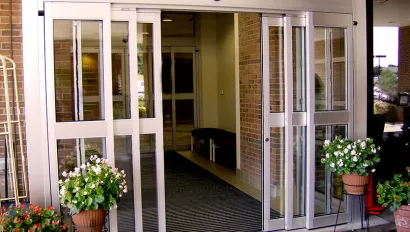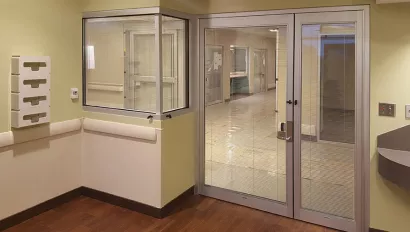A Guide for Architects, Facilities Managers, and Building Owners
Imagine a bustling commercial building, where doors open and close seamlessly, welcoming visitors and ensuring security. People enter and exit giving no thought about the mechanisms that allow them to move freely. As they should.
Yet, behind every smoothly operating door lies a crucial component - the door closer. Architects, facilities managers, and building owners play a pivotal role in selecting the right door closers for their commercial and institutional buildings. So let’s delve into which factors are most important to consider backed by real-world data and expert insights.

Understanding the Importance of Commercial and Institutional Door Closers
Obviously, commercial and institutional buildings serve a different purpose than residential structures. According to one survey, non-residential and public buildings account for approximately 47% of the construction market. These facilities witness a higher volume of foot traffic, require enhanced security measures, and must adhere to strict accessibility regulations that many residential buildings are not required to meet. This highlights the need for robust door closers that can withstand heavy usage.

Closing Arguments
The arguments for and against various types of door closers are made with regard to several factors. These include:
Durability and Performance
In high-traffic, commercial and institutional environments, door closers must withstand constant usage. For these uses closers made from highly durable materials, such as cast iron, are critical for that are enduring heavy-duty operations. These materials can raise the costs, so for areas that see less traffic, these heavy-duty materials may not be necessary due to reduced wear-and-tear. Dependability is still critical for these lesser-used doors, however, so closers should be tested for performance for a similar number of reliable cycles.
Compliance with Safety Standards
By law, all commercial buildings must adhere to safety regulations, including fire safety codes and accessibility requirements. Door closers must also comply. For example, a heavy-duty hydraulic door closer is often required for some doors to allow people to exit easily in case of an emergency but still be latched tightly enough to prevent smoke and gases from spreading further.
Adjustability and Control
Commercial buildings may require varying levels of door closing force depending on the location and purpose of the door. One option is select a door closer that offers adjustable closing speed and power, allows for customized door operation as per specific needs.

Other Considerations
The American with Disabilities Act (ADA) mandates that commercial buildings provide accessible doorways for individuals with disabilities. An estimated 19 million Americans have issues with mobility, emphasizing the importance of selecting door closers that meet ADA standards.
The Building Owners and Managers Association (BOMA) reported that energy-efficient building features can reduce operating costs by up to 30%. Choosing the right door closers can help minimize energy loss through doorways and be a part of an effective strategy for cost savings.
Let Us Help!
Choosing the right commercial door closer is a crucial decision that impacts the functionality, safety, and efficiency of your commercial or institutional building. By considering factors such as durability, compliance, adjustability, and noise control, making the optimal choice is easy.
As a renowned leader in the industry, STANLEY Access Technologies offers a wide range of services designed to meet the diverse needs of architects, facilities managers, and building owners. With over 90 years of experience, we provide innovative, industry-leading products and exceptional customer service that help our customers enhance security, energy-efficiency, and accessibility for all.




